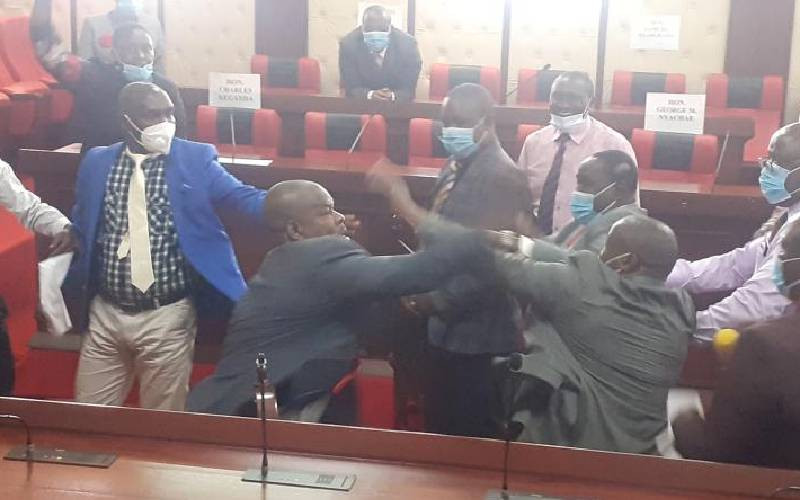×
The Standard e-Paper
Join Thousands Daily

Members of the Nyamira County Assembly have raised concerns over the distribution of drugs worth Sh30 million.
Through the Chairman of the Budget and Appropriations Committee Duke Masira, the MCAs said the drugs that were recently procured for county public hospitals were further being distributed to health facilities without documentation.